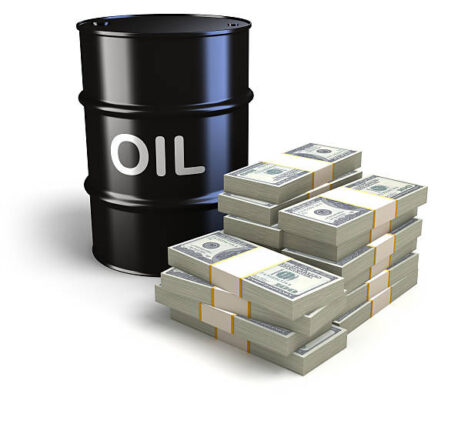The Coordinator of the Public Interest and Accountability Committee (PIAC), Mr Isaac Dwamena, has revealed that Ghana has produced a total of 633,300 barrels of crude oil since the country commenced production in 2010.
This total covers the period from 2010 to July 2024.
According to Mr Dwamena, 10,669,46 barrels were produced in 2011. In 2012, production increased to 11,454,79 barrels, and in 2013, the country produced 18,955,11 barrels.
In 2014, production stood at 18,679,59 barrels. The following year, 2015, saw a further increase to 19,038,84 barrels, but production dropped to 11,440,12 barrels in 2016.
However, in 2017, production surged significantly to 24,346,46 barrels, and continued to rise in 2018, reaching 28,982,05 barrels.
In 2019, production increased again to 34,309,68 barrels, but slightly decreased to 34,236,59 barrels in 2020. Production continued to decline in 2021 and 2022, with figures of 27,757,55 and 25,851,81 barrels respectively.
In 2023, a total of 22,452,07 barrels were produced, and by July 2024, 24,857,78 barrels had been produced, bringing the total to 633,300 barrels over the period.
Mr Dwamena made this known during a media engagement in Accra on PIAC's 2024 semi-annual report.
Currently, Ghana has three oil fields in commercial production: the Jubilee Oil Field, Sankofa/GyeNyame, and the TEN Fields.
In terms of revenue generation, the state has earned a total of $10.69 billion from the crude oil produced over the years, with the exception of 2011, when no semi-annual report was produced by PIAC.
On a yearly basis, the country earned $327.17 million in the first year of oil production, 2012. This revenue surged to $596.07 million in the following year, 2013.
However, from 2014 to 2016, oil revenue generation for the country declined to $410.44 million, $274.47 million, and $126.41 million respectively. In 2017, the revenue began to rise again, reaching $272.68 million, followed by $463.57 million in 2018.
In 2019, the revenue was $363.74 million, and it increased further to $638.63 million in 2020.
Over the last four years, the country has seen substantial earnings from the oil industry, with $350.32 million in 2021 and $731.94 million in 2022. Although there was a slight drop in 2023, with total revenue collected amounting to $540.46 million, a significant increase was recorded between January and July 2024, reaching $840.77 million, the highest revenue generated since 2010.
These revenues were paid as taxes to the Ghanaian government by the three companies producing the oil.
The taxes include Carried and Participating Interest (CAPI), Surface Rentals, the Petroleum Holding Fund (PHF), Corporate Income Tax (CIT), and Other Income.
Latest Stories
-
Dr Kwesi Eduafo Yankey appointed First Chancellor of Koforidua Technical University
1 min -
Lights on or off? Institute for Energy Security boss debates NDC and NPP track records
52 mins -
Adolescent parliament in Sunyani wants children’s concerns prioritised
2 hours -
Trump taps loyalists with few qualifications for top jobs
2 hours -
Ugandan Archbishop says Welby split global Anglican communion
2 hours -
Our ‘SSNIT revolution’ will boost healthcare access, help hospitals function better – Nana Kwame Bediako
2 hours -
Violent clash at swearing in of new Ho GPRTU executives
4 hours -
What Trump could do on day one in the White House
4 hours -
Mankessim shooting: Court orders prosecution to expedite investigations
4 hours -
Explainer: Expect to hear the F-word a lot in the US Senate next year
4 hours -
Nigeria’s NNPC signs 10-year gas sale deal with Dangote Refinery
5 hours -
S.Africa’s Vodacom eyes taking cloud-based phone to other African markets
5 hours -
Mauritius opposition leader Ramgoolam sworn in as PM after election rout
5 hours -
Ivory Coast to establish $500m green finance fund
5 hours -
Russia says African, ex-Soviet countries interested in its mpox vaccine
5 hours

